Banuchitra Suruliraj
COVID-19 Pandemic: Identifying Key Issues using Social Media and Natural Language Processing
Aug 23, 2020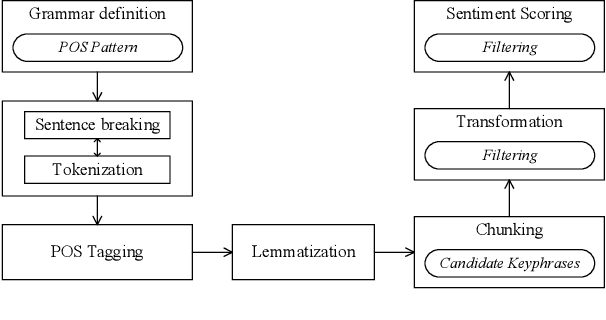
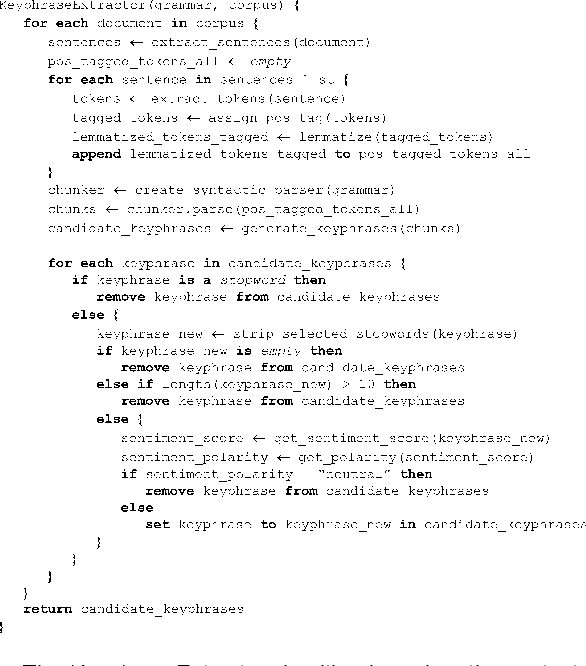

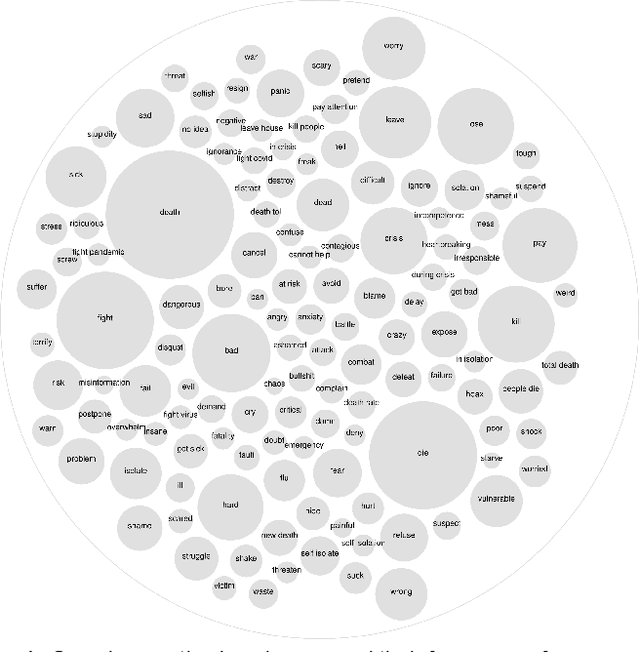
Abstract:The COVID-19 pandemic has affected people's lives in many ways. Social media data can reveal public perceptions and experience with respect to the pandemic, and also reveal factors that hamper or support efforts to curb global spread of the disease. In this paper, we analyzed COVID-19-related comments collected from six social media platforms using Natural Language Processing (NLP) techniques. We identified relevant opinionated keyphrases and their respective sentiment polarity (negative or positive) from over 1 million randomly selected comments, and then categorized them into broader themes using thematic analysis. Our results uncover 34 negative themes out of which 17 are economic, socio-political, educational, and political issues. 20 positive themes were also identified. We discuss the negative issues and suggest interventions to tackle them based on the positive themes and research evidence.
Health, Psychosocial, and Social issues emanating from COVID-19 pandemic based on Social Media Comments using Natural Language Processing
Jul 23, 2020
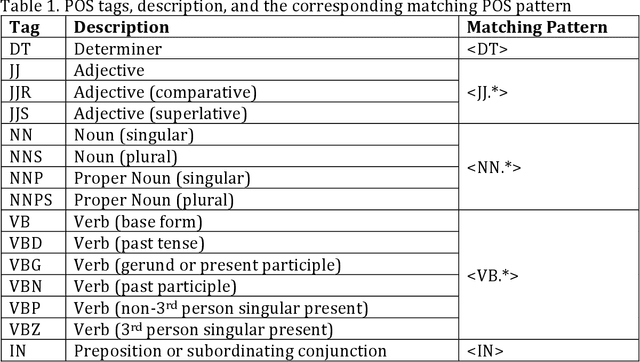
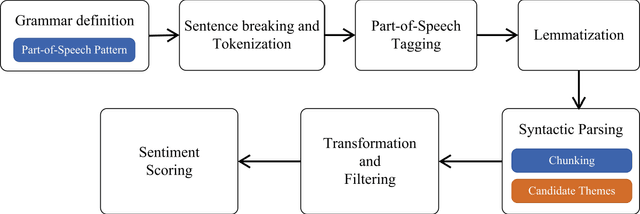

Abstract:The COVID-19 pandemic has caused a global health crisis that affects many aspects of human lives. In the absence of vaccines and antivirals, several behavioural change and policy initiatives, such as physical distancing, have been implemented to control the spread of the coronavirus. Social media data can reveal public perceptions toward how governments and health agencies across the globe are handling the pandemic, as well as the impact of the disease on people regardless of their geographic locations in line with various factors that hinder or facilitate the efforts to control the spread of the pandemic globally. This paper aims to investigate the impact of the COVID-19 pandemic on people globally using social media data. We apply natural language processing (NLP) and thematic analysis to understand public opinions, experiences, and issues with respect to the COVID-19 pandemic using social media data. First, we collect over 47 million COVID-19-related comments from Twitter, Facebook, YouTube, and three online discussion forums. Second, we perform data preprocessing which involves applying NLP techniques to clean and prepare the data for automated theme extraction. Third, we apply context-aware NLP approach to extract meaningful keyphrases or themes from over 1 million randomly selected comments, as well as compute sentiment scores for each theme and assign sentiment polarity based on the scores using lexicon-based technique. Fourth, we categorize related themes into broader themes. A total of 34 negative themes emerged, out of which 15 are health-related issues, psychosocial issues, and social issues related to the COVID-19 pandemic from the public perspective. In addition, 20 positive themes emerged from our results. Finally, we recommend interventions that can help address the negative issues based on the positive themes and other remedial ideas rooted in research.
 Add to Chrome
Add to Chrome Add to Firefox
Add to Firefox Add to Edge
Add to Edge